Public Sociology Award
Public sociology has a long tradition at the University of Minnesota and we continue to provide research and council to individuals and organizations who create good and perpetuate our mission of engaged scholarship.
Our faculty and alumni have been national leaders in both public outreach and community engagement. Beginning in 2005, we formally acknowledge individuals or groups who continuously reach beyond the rigors of their research to understand the issues, events, and change that engage a wider audience. Each year, we recognize the importance of work that can engage wider audiences outside of the University's setting.
Learn more about the recipients of our Public Sociology Award:
- 2024: No recipient selected
- 2023: Carolyn Liebler
- 2022: Elizabeth Wrigley-Field
- 2021: Michelle Phelps
- 2019: Letta Page
- 2018: Heidi Barajas
- 2017: Genocide Education Outreach (GEO) Program
- 2016: Muneer Karcher-Ramos
- 2015: Cawo Abdi
- 2014: Minnesota Second Chance Coalition
- 2014: Alejandro Baer
- 2013: Minnesotans for a Fair Economy
- 2012: Lisa Wade and Gwen Sharp: Sociological Images
- 2011: Contexts Graduate Student Board
- 2010: Phyllis Moen
- 2009: Wilder Research
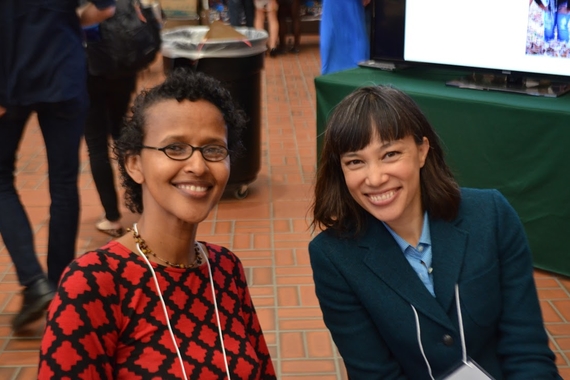
The 2015 Public Sociology Award honors the commitment and outstanding contributions of Professor Cawo Abdi, assistant professor of sociology at the University of Minnesota, for her efforts to inform the general public regarding the everyday reality of Somalis in the US, Minnesota, and the world. As her nominator states,
This is particularly important at a time when Muslim Americans are increasingly under scrutiny and often stereotypically portrayed in the mainstream media. Her research, teaching, and public engagement contribute to counteract these trends, which tend to flare up whenever terrorist activities are reported as well in rhetoric and reactionary politics regarding identity, migration and national security.
Through her response to many media inquiries, thoughtful opinion pieces, invited presentations, as well as with her soon-to-be-released ethnographic study, Elusive Jannah: The Somali Diaspora and a Borderless Muslim Identity (University of Minnesota Press), Dr. Abdi brings sociological knowledge to a wider audience and contributes to public debates and social policy. She has become the 'go-to' person for journalists wishing to understand anything related to Somalis–in the US and abroad.
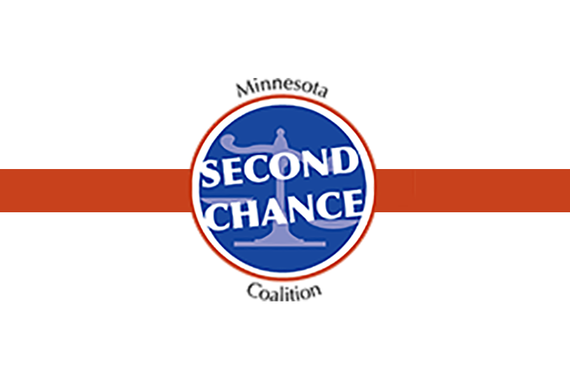
The 2014 Public Sociology Award honors the coalition members of Minnesota Second Chance Coalition (SCC) with the Public Sociology Award for their work as criminal justice reform advocates. The Coalition is a partnership of over 50 organizations that advocate for fair and responsible laws, policies, and practices that allow those who have committed crimes to redeem themselves, fully support themselves and their families, and contribute to their communities to their full potential.
Chance Coalition and its member organizations have affected significant policy changes and increased awareness and visibility of second chance issues on a local and national level. Minnesota Second Chance Coalition was crucial in the ground-breaking policy change enacted by the Ban the Box Bill. Minnesota is now the first state to require all public employers to wait until an applicant has been selected for an interview before inquiring about their criminal record. As one nominator stated,
…they nimbly use sociological research to advance social change. They have the unique ability to distill complex research findings into bullet points that are effective for lobbying legislators and speaking to the media. They are public sociologists in the best sense of the term.
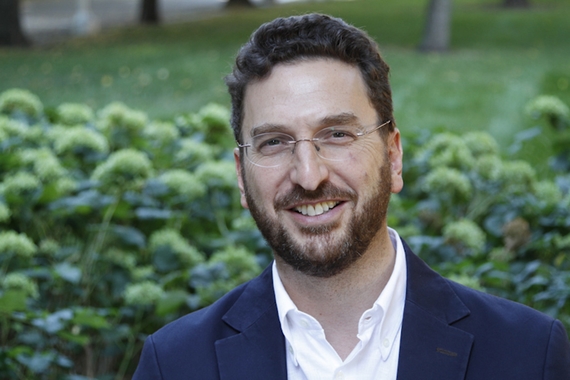
The 2014 Public Sociology Award honors the outstanding work of Professor Alejandro Baer, a member of the Department of Sociology faculty and director of the Center for Holocaust and Genocide Studies. He has worked tirelessly to establish links between scholarship and the community in impressive ways. Professor Baer has contributed to the public discourse through his numerous opinion pieces and expert commentary addressing the difficult and critical issues surrounding genocide and mass atrocities. He has also undertaken many public outreach activities, bringing his academic pursuits (especially on collective memory) to the public–seeking to apply lessons of the Holocaust to the fate of other groups who live with the memory of past destruction.
The breadth of his outreach is extraordinary, from leading a workshop for K–12 educators to organizing a major conference, Representing Genocide: Media, Law and Scholarship. He is truly bringing his research, knowledge, and experience to the public. Aptly put by one of his nominators,
His program, workshops, symposia, and individual outreach are literally unparalleled in our department. We are indeed fortunate to have Professor Baer as an exemplar of public sociology at the University and Twin Cities as well as international communities.
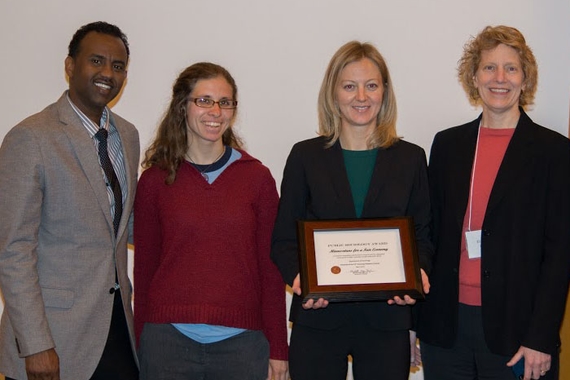
The 2013 Public Sociology Award honors the coalition members of Minnesotans for a Fair Economy (MFE). This statewide initiative of aligned organizations brings together labor, faith, and community groups representing service workers, healthcare employees, residents of urban neighborhoods, farmworkers, church-goers, immigrants, low-wage workers, communities of color, and other constituencies. For the last two years, Minnesotans for a Fair Economy has been working to aggregate the energy of these diverse groups and other advocates of social justice under the banner of an economy that works for everyone. Their mission is to build and implement the progressive infrastructure to bring about a different economic arrangement that would reduce income inequality, promote social justice, and increase racial equity
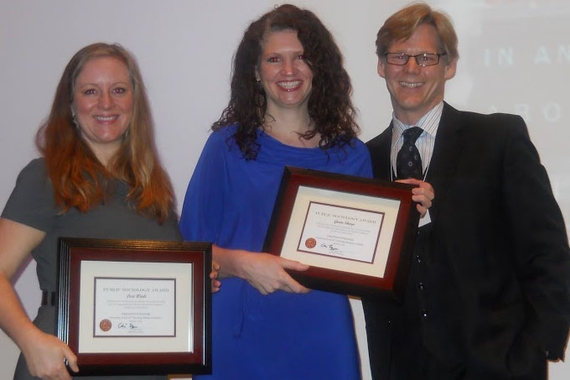
The 2012 Public Sociology Award honors Professor Lisa Wade (Occidental College) and Gwen Sharp (Nevada State College), the creative masterminds behind Sociological Images: Seeing is Believing, a remarkable blog and website that brings cogent sociological analysis to the pictures we see in everyday life. Sociological Images encourages both academic and non-academic readers to exercise and develop their sociological imagination, presenting brief sociological discussions of compelling and timely imagery that spans the breadth of sociological inquiry. Sociological Images is described as a “relatable, interesting way to draw both students and the lay public into sociology,” in keeping with our department’s tradition of outreach and engaged scholarship. It is a “vibrant and refreshing work…at the intersection of teaching and public scholarship”.
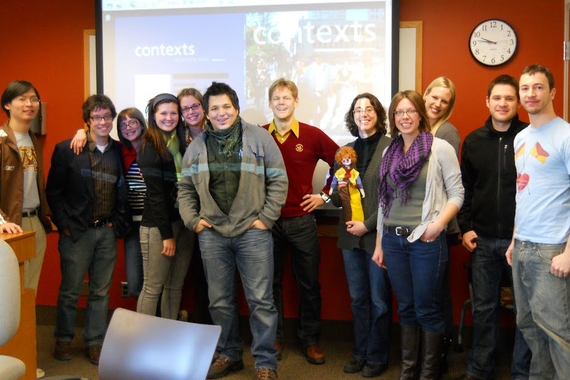
The 2011 Public Sociology Award honors the graduate student editorial board members of Contexts magazine. Over the past four years, these students have read, written, argued, laughed, learned, and created. They’ve become engaged scholars of the first rank. Our students have written hundreds of exciting “Discoveries” which engage lay readers and serious academics. Contexts Graduate Student Editorial Board members exemplify the magazine's mission of reaching outside the ivory tower. Over the first four years that Contexts has been at the University, these 25 students have made it what it is: an award-winning, peer-reviewed journal that we’re proud to show off to audiences both inside and outside academia. Congratulations to Ryan Alaniz, Arturo Baiocchi, Erika Busse, Amelia Cotton Corl, Keith Cunnien, Sinan Erensu, Shannon Golden, Kyle Green, Kristin Haltinner, Kia Heise, Meghan Krausch, Sarah Lageson, Wesley Longhofer, Liying Luo, Suzy Maves McElrath, Heather McLaughlin, Jeremy Minyard, Hollie Nyseth, Timothy Ortyl, Sarah Shannon, Chika Shinohara, Jon Smajda, Daniel Winchester, Jesse Wozniak, Chen-Yu (Andy) Wu.
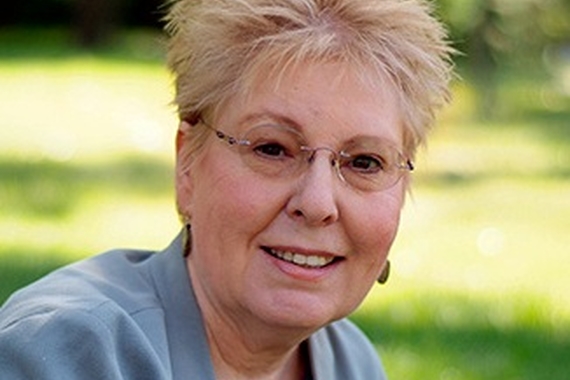
The 2010 Public Sociology Award honors Professor Phyllis Moen. Throughout her career, Professor Moen explores research topics that have direct social relevance and concrete policy implications (such as gender roles and career development, retirement policies, or the impact of flexible work plans on work and family well-being).
In addition, Professor Moen has worked tirelessly to bring her knowledge and that of other sociologists to broader public attention and influence. Whether in serving on local and national panels, boards, or advisory committees, writing editorials and op-eds, or talking with community groups, New York Times reporters, or on National Public Radio, Professor Moen has understood the need to translate sociology to lay audiences as well as draw out its significance for policy, politics, and culture. In each of these roles and all of these settings, Phyllis Moen has not only performed admirable public service, she has also become a wonderful ambassador of and role model for the Minnesota model of publicly engaged sociology. Professor Moen was honored at the 20th Annual Sociology Research Institute on Friday, April 23rd at 1:00 p.m. in the Cowles Auditorium, HHH Center. See Phyllis Moen: A Tribute.
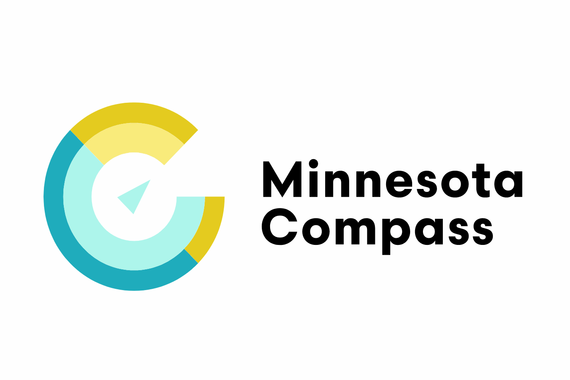
The 2009 Public Sociology Award honors Wilder Research in recognition of the launch of Minnesota Compass, which was developed to provide a common foundation to identify, understand, and act on community issues that affect the Twin Cities and surrounding communities. By tracking topics that impact quality of life, including civic engagement, early childhood, economy and workforce, education, health, housing, public safety and transportation, they provide unbiased, credible information about how our region is faring: to alert policy makers, community leaders and the public to significant trends, to promote coordinated efforts to address them, to measure and communicate progress, and identify solutions and build consensus to promote productive action.
More than 300 volunteers, including educational institutions, private industry, and public and non-profit sectors have helped to shape Minnesota Compass. Through presentations, their website, and most recently on Facebook, Wilder Research reports new findings, discusses how issues are being addressed, and informs groups working to promote positive change in our region.